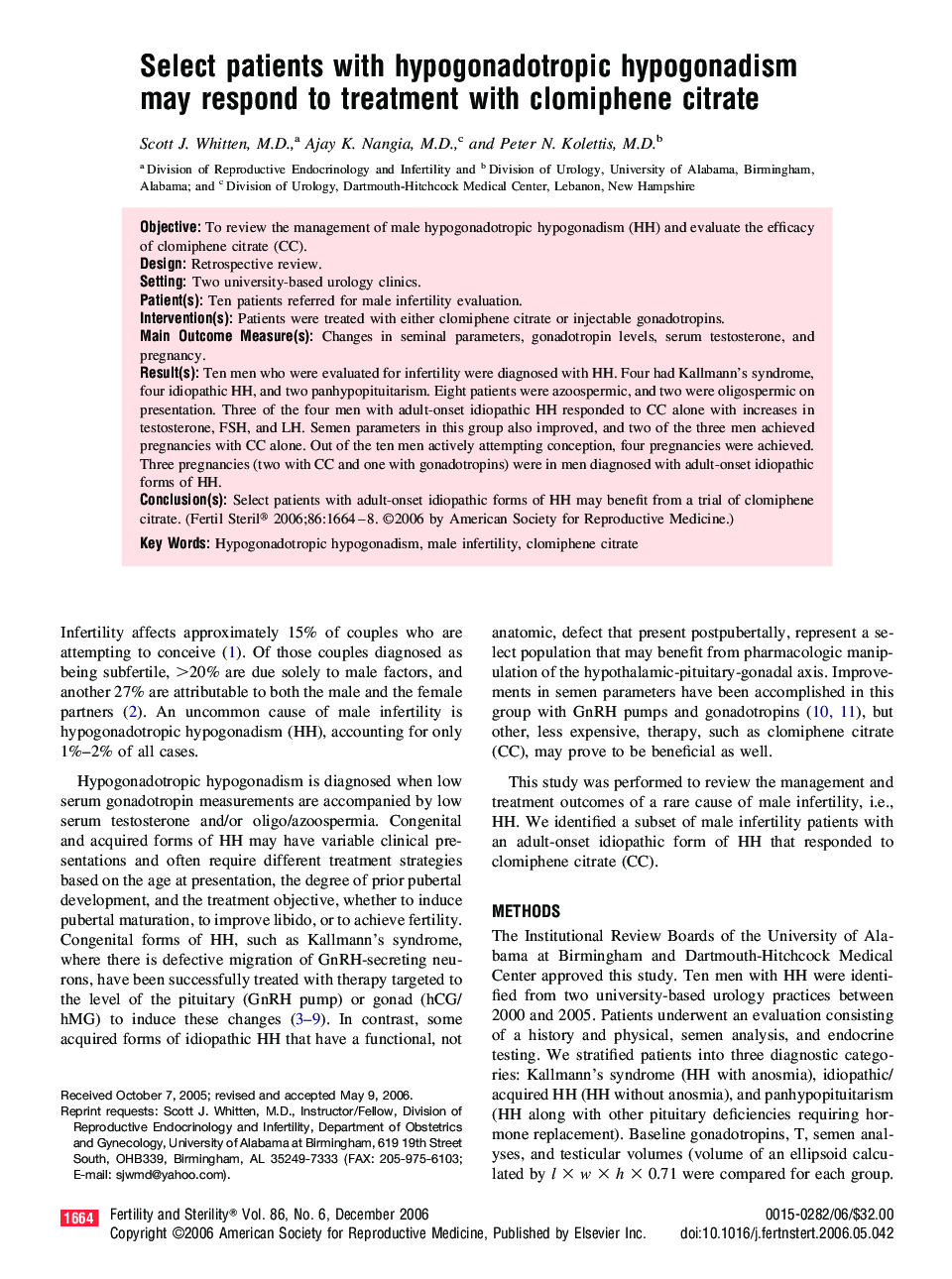| Article ID | Journal | Published Year | Pages | File Type |
|---|---|---|---|---|
| 3937631 | Fertility and Sterility | 2006 | 5 Pages |
ObjectiveTo review the management of male hypogonadotropic hypogonadism (HH) and evaluate the efficacy of clomiphene citrate (CC).DesignRetrospective review.SettingTwo university-based urology clinics.Patient(s)Ten patients referred for male infertility evaluation.Intervention(s)Patients were treated with either clomiphene citrate or injectable gonadotropins.Main Outcome Measure(s)Changes in seminal parameters, gonadotropin levels, serum testosterone, and pregnancy.Result(s)Ten men who were evaluated for infertility were diagnosed with HH. Four had Kallmann’s syndrome, four idiopathic HH, and two panhypopituitarism. Eight patients were azoospermic, and two were oligospermic on presentation. Three of the four men with adult-onset idiopathic HH responded to CC alone with increases in testosterone, FSH, and LH. Semen parameters in this group also improved, and two of the three men achieved pregnancies with CC alone. Out of the ten men actively attempting conception, four pregnancies were achieved. Three pregnancies (two with CC and one with gonadotropins) were in men diagnosed with adult-onset idiopathic forms of HH.Conclusion(s)Select patients with adult-onset idiopathic forms of HH may benefit from a trial of clomiphene citrate.
